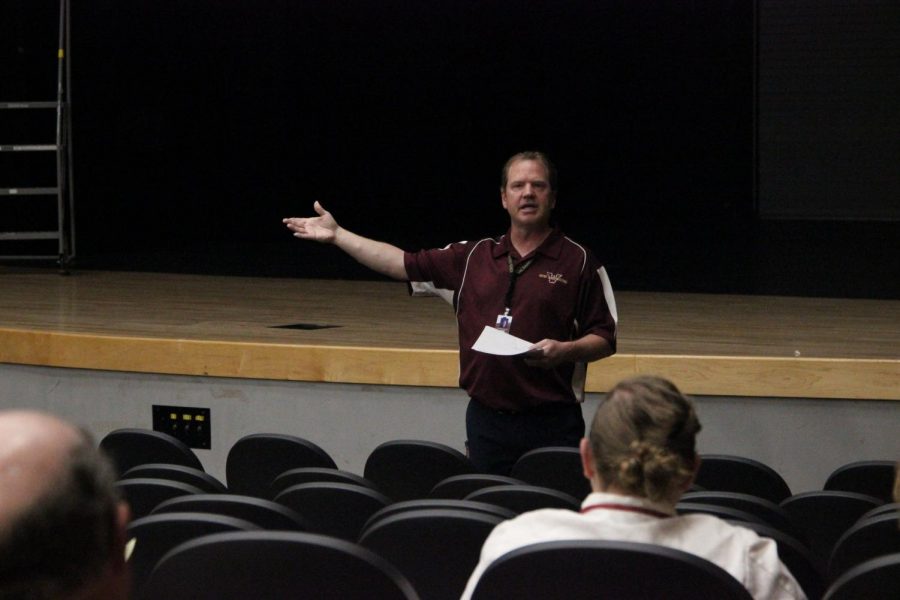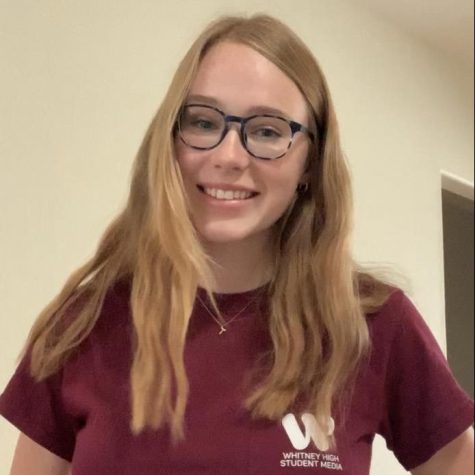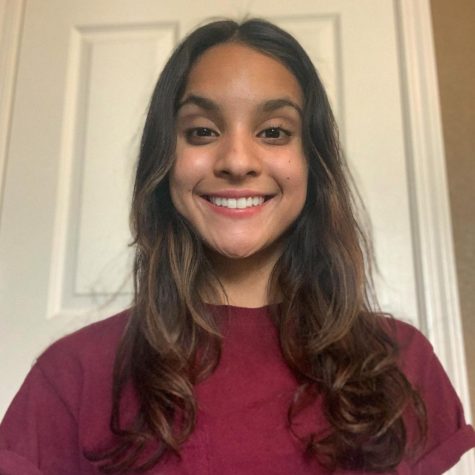Senior Mock Interviews require preplanning from Counselor Mr. Patrick Floyd
Counselor Mr. Patrick Floyd explains his role with Senior Mock Interviews and why the event is an important experience for seniors. He explains the steps between enlisting volunteers, adjusting senior schedules and selecting the interviewers. The required language arts activity helps seniors to build confidence and lower anxiety related to the interview process.
Q: What was your role in planning the mock interviews?
A: My role as the school counselor was to enlist volunteers, number one, to kind first put it out there via emails, phone calls, personal conversation and enlist volunteers from the community. And then number two, once we got the volunteers, was to start that whole scheduling process for the seniors, 450 of them or however many there are. The biggest part was getting the 450 seniors to get them schedule with an interview time, day, interviewer and location, so the logistics of it all is a little challenging because Whitney is so big and we have limited space for something this big. So basically, enlisting volunteers and scheduling are my two biggest roles. And then working with the staff, [such as] culinary classes to provide lunch and graphics class to provide the name tags and name plates.
Q: What have you been doing throughout the week with the mock interviews?
A: This week is all about adjusting to seniors’ schedules. Some of them had Friday games so they are going to be off campus. We had to move their interviews to Thursday. We had a handful of seniors that sometimes have to cancel so we had to fill in. But if I am on time with everyone schedule the Friday before, I can start doing all the adjustments.
Q: What do you think students gain from this experience?
A: Number one is confidence. Number two is reducing their anxiety about the interview process. Some of the nervousness they feel know, they know they will later on five to ten years from now. And then also strategies on how to attack questions. How do I attack the weakness question? When an interviewer asks what are your weaknesses, you don’t want to say not coming to a job. You don’t want to go down the negative path; you want to turn into a positive and more about saying that I work too hard and forget the time, next thing I know it’s 5 p.m.
Q: How are the professional interviewers selected?
A: Usually, my goals are to get interviewers working in the community. It is hard because their job and business comes first. I get a mix of retired professionals and people in the business world right now. It is usually a mix between those two and before I was just trying to get a couple started but now that the word has spread, there are interviews that have been here all nine years. Now I am having to back off people for half days.
Q: What is your favorite part in seeing this play out?
A: I think when a student leaves their interview. They are nervous before, [and when they] walk out of the interview, that anxiety has lowered, [and] confidence has built. Sometimes they are high-fiving the people on deck waiting; sometimes they are pumping their firsts. It’s the pure excitement and knowledge that they will be okay; you got skills, now you need to continue that education and go kill it.
by TRINITY BARKER & KATIE LOMBA










